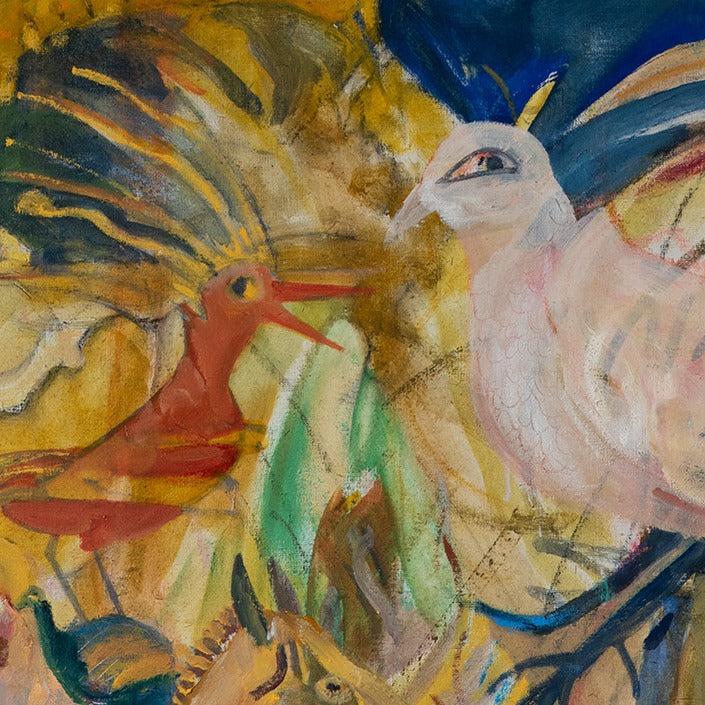
EPOPS Atticus
As a man named Tereus, I was wretched; yet when I was transformed into a bird, I found bliss—if only because I was no longer a featherless biped, as Plato defined man (a definition that provoked the mockery of the Cynic philosopher Diogenes), but rather a biped that does possess feathers. Gods and men, creatures great and small, all bear witness that I am endowed with incomparable beauty. The crowning feature of my grace is my crest—more famous than Hector’s horsehair-plumed helmet, Berenice’s hair, or Absalom’s luxuriant locks. This crest—one might rightly call it a triple crest—acts as a barometer of my moods and emotions, rising or falling to mirror my joy, sorrow, or melancholy. Even Zeus himself, admiring my beauty, transformed into a hoopoe to seduce Lamia, the most beautiful woman in the world—yet also the most quick-tempered, who struck fear and dread into the hearts of small children.
My name, Epops, is neither a trivial label nor an arbitrary linguistic sign, but a majestic onomatopoeia—a reflection of my essence, an imitation of my voice. And yet, even the mistaken etymologies proposed about it flatter me—such as the one that derives Epops from epoptēs, the initiate in the highest degree of the Eleusinian Mysteries. Nor does the hybrid Tsalapeteinos displease me (from Turkish çalı, “bush,” and Greek peteinos, “bird”); after all, I am no narrow-minded purist of language.
In his longest, deepest, and most subversive comedy, The Birds, Aristophanes gave me the opportunity to fully display my virtues—as a diplomat, a politician unshaken by the utopias of intellectuals, and above all, as a melodious soloist, creator, and interpreter of the most delicate poetry, the very master of this inspired art. Seizing this opportunity, I developed—under the pretext of the birds’ diet—my ecological concerns and furthermore proposed for discussion the great and timeless issue of intergenerational solidarity, which takes on dramatic proportions when it concerns the love children owe to their parents, especially to their fathers in old age. The poet could not have done otherwise, since our tradition, both ancient and popular, holds that the hoopoe—like the stork (cf. antipelargēsis, the repayment of care toward one’s parents in old age)—is famed for its devotion to its progenitors.
Therefore, I graciously grant your newly founded publishing house the right to adopt the lofty poetry and layered meanings of my name, on the condition that priority be given to the fields that concern me most: art, literature, philosophical thought, ecology, and social empathy. There may be spiteful tongues that reproach me for self-reference and irritating self-admiration; but is not our age nothing more than the long century of narcissism?
